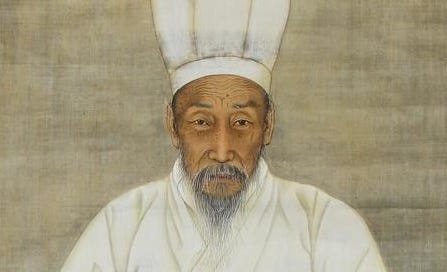What Are East Asian Values?
Stop claiming East Asian identity if you don’t live by the foundation.
1. 효 (Filial Piety, 孝)
At the very heart of Confucian ethics lies 효, or filial piety. In Korea, this value extends beyond mere respect—it’s a foundational duty that connects individuals to their family, community, and history. To be truly East Asian means honoring ancestors not just through rituals but by carrying forward their legacy with humility and understanding. This includes acknowledging the sacrifices and pain of previous generations, even when their choices were flawed or difficult. Our identity is grounded in this ongoing relationship with the past, rooted firmly at home, not just in abstract historical narratives.
2. 화합 (Harmony, 和合)
In Chinese culture, 화합 emphasizes maintaining social balance and cohesion. Harmony does not imply avoiding conflict or suppressing opinions but involves managing disagreements with tact, patience, and a strategic long-term view. It prioritizes collective well-being over individual expression. Unlike Western confrontation, which often values bluntness and debate, East Asian harmony seeks resolution through subtle negotiation and preserving face. This ensures that the group remains unified and stable, even through challenging times.
3. Giữ thể diện (Saving Face, 體面)
In Vietnamese culture, saving face goes beyond personal pride; it is about maintaining dignity, composure, and the honor of the community. This value demands emotional restraint, even in moments of conflict or hardship, and rejects any behavior that might embarrass oneself or one’s family publicly. Desperation to appear as a victim or to dramatize suffering is considered a grave loss of face. Enduring difficulties with quiet resolve shows true strength, protecting social harmony, and preserving the respect and reputation of one’s community.
4. 겸손 (Humility, 謙遜)
Humility is foundational in East Asian thought. It means recognizing that no one is above learning or wisdom, no matter how much they think they know. Speaking over elders, survivors, or experts is disrespectful and shows ignorance. True humility involves understanding the limits of your own knowledge and valuing the experiences and voices that came before you. Asian history isn’t about your personal story—it's a vast collective narrative that deserves reverence, not self-centered appropriation.
5. 감사 (Gratitude, 感謝)
Gratitude is more than politeness; it is a moral obligation to honor the sacrifices of ancestors, mentors, and freedom fighters who endured tremendous hardship to preserve our culture. This legacy was not built on social media trends or fleeting moments of outrage. To erase or dismiss this lineage because it doesn’t fit a personal agenda is to reject the very foundation of East Asian identity. What we inherit is a rich, ongoing tradition—not a platform for performative virtue.
6. 학문존중 (Respect for Scholarship, 尊重學問)
East Asian cultures hold scholarship in the highest regard. Study, reflection, and respect for history and literature are essential virtues. We do not discard the work of historians, philosophers, or scholars simply because it doesn’t align with modern political narratives or appear “radical.” True wisdom comes from disciplined learning and deep engagement—not from quick social media soundbites or outrage-filled tweets.
7. 맥락 (Cultural Context, 脈絡)
The racial and social dynamics of America do not translate directly to East Asia. East Asian identity is deeply embedded in specific histories, languages, and geographies. Applying Western racial frameworks without understanding this context distorts and flattens our complex identities into simplistic caricatures. East Asians are not props in someone else’s narrative of guilt or redemption. Our stories stand on their own.
8. 책임감 있는 정체성 (Responsible Identity, 責任感 있는 正體性)
Being Asian involves responsibility, not just appearance or grievances. It means fulfilling duties to family, community, country, and ancestors. Identity is not a blank check for entitlement or righteousness; it is earned by carrying forward values and obligations with sincerity. Saying “I’m Asian, therefore I’m right” ignores the core principle that true identity demands accountability and meaningful contribution.
9. 자제 (Restraint & Discipline, 自制)
Mature discourse in East Asia values restraint and discipline. This means controlling one’s tone, choosing the right moment to speak, and carefully weighing words before sharing them publicly. Self-control is seen as a mark of strength and maturity, while impulsiveness signals insecurity and immaturity. Maintaining dignity and respect in conversation is not optional—it is deeply embedded in our cultural fabric.




